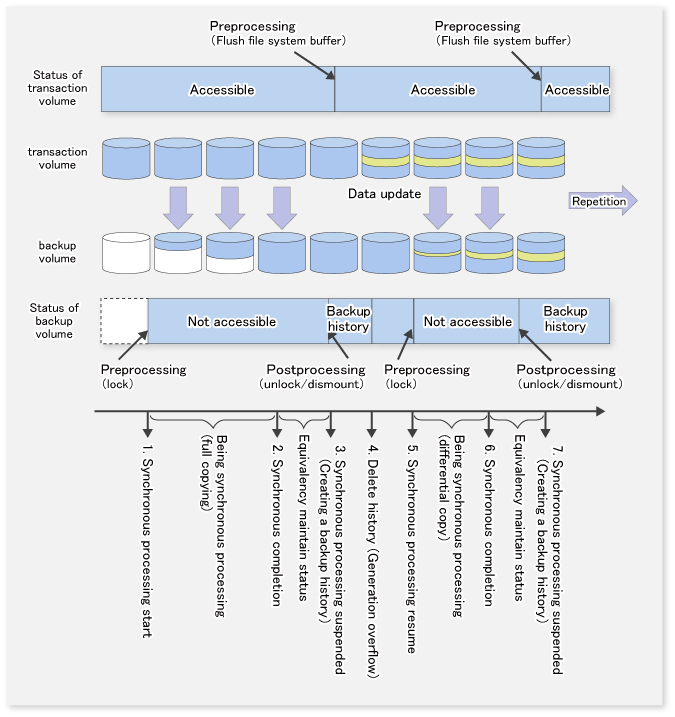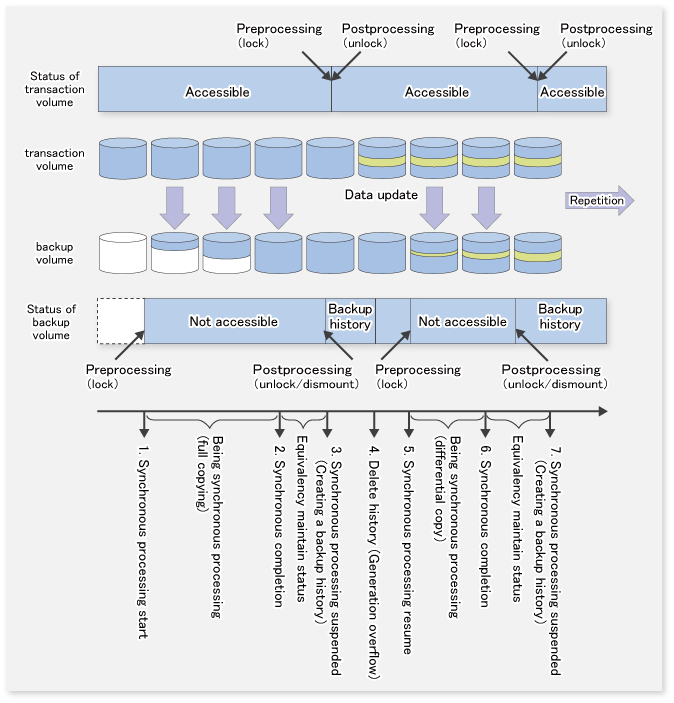By specifying the -Xflush option in swstbackup (Backup execution command) or setting BufferFlushOnly to "on" in the transaction volume locking specification file for backups, the backup of AdvancedCopy Manager flushes the file system buffer without locking the transaction volume.
If you want to lock the transaction volume, set BufferFlushOnly to "off" in the transaction volume locking specification file for backups and execute the backup execution command without the -Xflush option.
The backup volume is locked by the pre-processing script. The backup volume is locked when the backup synchronous processing or snapshot sequence starts and is unlocked after backup post-processing is complete.
Type | Detail of operations |
|---|---|
Pre-processing for synchronous processing | Default operation:
|
Post-processing for synchronous processing | Default operations:
|
Backup pre-processing | Default operations:
When the -Xflush option is not specified and BufferFlushOnly is set to off:
|
Backup post-processing | Default operations:
When the -Xflush option is not specified and BufferFlushOnly is set to off:
|
Type | Detail of operations |
|---|---|
Pre-processing for synchronous processing | The backup volume is locked. |
Post-processing for synchronous processing |
|
Backup pre-processing |
The file system buffer of the transaction volume is flushed regardless of the -Xflush option specification or the value of BufferFlushOnly. |
Backup post-processing |
|
To add user-specific processing to the pre-processing or post-processing, add the required processing to the appropriate backup script.
These scripts are coded in the Jscript language and executed on a Windows Scripting Host (WSH).
When customizing a script, strictly observe the following rules regarding error codes:
Error code | Usage |
|---|---|
0-99 | Unusable (these are reserved for AdvancedCopy Manager) |
100-255 | Usable |
Note
If pre-processing failed, execute swstsrsemtch (Resource match command) because the consistency of resource information may be incomplete.
The figure below shows a diagram of the pre-processing and post-processing operations:
Figure A.1 Processing in a synchronous-type backup operation (flushing the file system buffer of transaction volume)

Figure A.2 Processing in a synchronous-type backup operation (locking the transaction volume)
